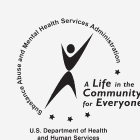
SAMHSA Twitter Chat to be Held Today
|
Get your questions about recovery from addiction and treatment answered by experts during a Twitter chat held today from 3:30 to 4:30 p.m. ET and hosted by the Substance Abuse and Mental Health Services Administration. This event will create a dialogue with experts in the recovery, treatment and prevention fields, to allow the public to ask questions and learn more information. They hope to spread the message that prevention works, treatment is effective and people can and do recover. This September #RecoveryChat will celebrate Recovery Month and will be co-hosted by Dr. Westley Clark, director of SAMHSA’s Center for Substance Abuse Treatment and Kathryn Power, director of SAMHSA’s Center for Mental Health Services. You can participate by following and tweeting with the #RecoveryChat hashtag on Twitter.

